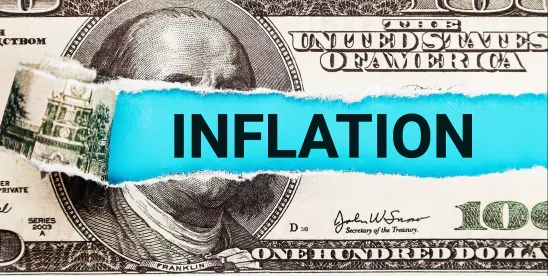With less than two weeks to go until the historic 2024 election, we take a closer look at the Inflation Reduction Act (IRA) and consider its possible fate following the high stakes 2024 Presidential Election.
What is the IRA?
The Inflation Reduction Act (IRA) was one of the most significant actions of the Biden Administration, enacting three Democratic priorities at once: climate and clean energy investment, price controls on healthcare, and tax provisions to increase collections from top earners. In 2022, the legislation passed with the thinnest of margins under the Budget Reconciliation process, which required a simple majority vote. 50 Senators voted YEA, while 50 Senators voted NAY (no Republican voted in favor of the bill). Vice President Kamala Harris, the current Democratic nominee for President, cast the tie breaking vote allowing the legislation to pass out of the U.S. Senate.
Unlike prior efforts to enact climate legislation, the IRA succeeded in earmarking billions of tax dollars to incentivize investment in domestic energy production and manufacturing, with a focus on reducing carbon emissions. Specifically, the law directs $369 billion to Energy Security and Climate Change programs between 2022 and 2032. Within this program, there are many different credits available, including financial support for Clean Hydrogen, Second Generation Biofuels, Clean Electricity Production, as well as the creation of the Advanced Manufacturing Production Credit.
This concentrated funding has helped to spur private investment in onshoring renewable energy, largely benefiting Republican leaning districts. Republican districts represent 85% of the new investments and 68% of new job growth produced by the law. More interesting, is that 19 of the top 20 congressional districts receiving this investment are currently held by Republicans.
The law also imposed a controversial “methane tax” on certain energy producers, starting at $900 per metric ton of methane, increasing to $1,500 after two years. This emissions charge is the first time the federal government has directly imposed a charge, fee, or tax on greenhouse gas emissions.
Is the IRA at Risk?
Yes, maybe – it depends.
Despite the apparent windfall to Republican districts, the party, led by former President Trump, has made the IRA a central campaign issue, promising to repeal the law should they win the trifecta, both Houses of Congress and the White House.
The Republican party, led by former President Trump, has made the IRA a central campaign issue, promising to repeal the law should they win the trifecta, both Houses of Congress and the White House.
A driving reason behind talk of repeal is the party’s desire to extend provisions of the Tax Cuts and Jobs Act, signed into law on January 1, 2018, which is set to expire soon. Specifically, the individual tax rate cuts in the Trump-era law are set to expire in 2025, which would raise taxes on the middle-class next year. Accordingly, Republican lawmakers’ position is that reclaiming the unallocated IRA funds is an attractive way to keep middle class taxes low, while maintaining fiscal discipline. Notably, since the introduction of the IRA, there have been at least 23 attempts to repeal it on the House Floor.
Are Republicans Poised to Win in November?
Republicans scoring a political hat trick on November 5 would be difficult, but it is far from an impossible outcome.
Only a fool or the foolishly confident, would make a prediction on the outcome of the Presidential election, so we decline to do so here. We will only note that the race to the White House is exceedingly tight and there are a myriad of factors modern day polling techniques might not adequately capture.
Looking at the most recent national polling, it is also unclear if either party has an advantage on gaining control of the House, which is already split nearly down the middle. While the generic ballot is close, it currently favors Democrats by a mere 1%. It is not unreasonable to think that the House may follow the White House and the momentum generated by the top of the ticket.
However, while the future of the House is murky, conventional wisdom does suggest that the U.S. Senate will flip to Republican control in 2025, as 23 of the 34 seats up for election are currently held by Democrats or affiliated Independents. 13 Senate seats occupied by a Democrat are vulnerable, while only two Republican seats are in jeopardy of being flipped in November.
Even if They Do Win, Can Republicans Repeal the IRA?
While Republicans would first need to win the House, Senate, and White House to be able to repeal the IRA, the question of willpower to repeal the law in full remains. A slightly more likely – and pragmatic – scenario is if Republicans opt for a partial repeal.
While Republicans would first need to win the House, Senate, and White House to be able to repeal the IRA, the question of willpower to repeal the law in full remains.
The strongest factor weighing against the preservation of the original form of the IRA is that the law was passed under a Budget Resolution, which only requires a majority vote to undo. Accordingly, there will be no opportunity for a filibuster to defeat a repeal effort. Republicans would only have to secure a simple majority vote in both the House and the Senate and obtain the signature of the President, to repeal the law.
However, even with a majority in both Chambers, a full repeal of IRA is already proving to be politically difficult. Indeed, on August 6, 2024, 18 House Republicans sent a letter to Speaker Johnson urging him to, “prioritize business and market certainty as you consider efforts that repeal or reform the Inflation Reduction Act.” The letter proposes a strategy to repeal some, but not all the provisions of the IRA. This approach is favored by powerful business groups, like the U.S. Chamber of Commerce and even major energy companies.
My Company Made Investment Decisions Based on the IRA. What Should We Do?
In addition to having a stiff drink and one eye closed on election night, clients who have made investment decisions in reliance on the IRA should consider whether they have done enough to recruit allies in Congress and across the Beltway and secure their ability to avail themselves of the already allocated provisions. For clients burdened by the “methane tax” a Red Wave could produce a sympathetic audience to eliminate certain onerous and duplicative provisions of the law.
For both camps, it is important to remember that Members of Congress remain highly responsive to policy decisions that have a direct impact on their districts and communities. Hearing from the local businesses who have made investment decisions in reliance on existing statute, or those whose commercial activities are being stifled, can influence the position Members ultimately take on the repeal of the IRA, should it be put to a vote. Providing them with the knowledge that real jobs and tangible investment are at risk in their backyard remains a powerfully persuasive tactic.




 />i
/>i

